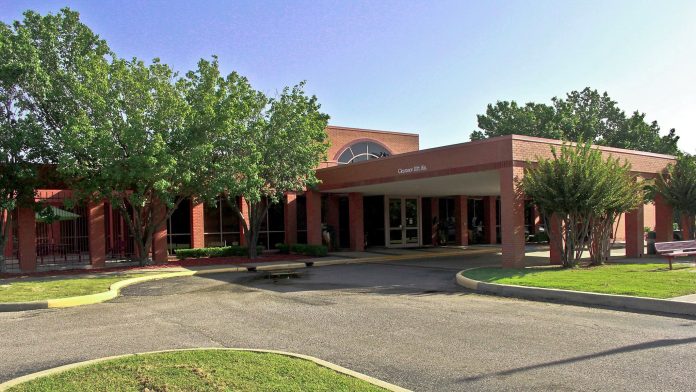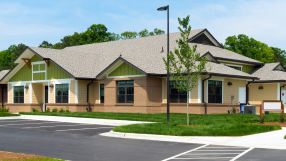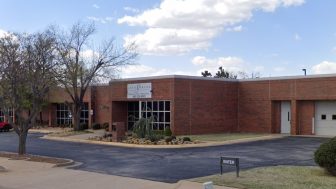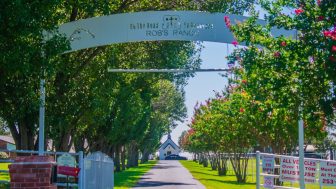Rolling Hills Hospital
1000 Rolling Hills Lane
Ada, OK 74820
Ada, Oklahoma
855-968-0757
Get Help Now - 405-461-1486
 Who Answers?
Who Answers?

Amenities

Art Therapy
Art and music are mediums that connect with our feelings, making them a great recovery tool during addiction t...reatment. Studies show that combining art/music and drug rehab can have a greater therapeutic impact than drug rehab alone, as you’re able to access parts of your brain and body that you may not have access to during traditional talk therapy. Benefits of art/music therapy include lowering stress and anxiety, promoting healthy neurochemicals, and providing stress relief.Read More

Private Rehab
Private drug rehab provides a comfortable, secure environment that allows you to focus on doing the work to ge...t your life back on track. Benefits include a higher staff-to-client ratio, increased one-on-one time with therapists and healthcare providers, private rooms for clients, and customized forms of therapy.Read More

Rec Room & Activities
Recreational therapy uniquely combines therapeutic interventions with an activity, like horse-riding, hiking, ...wilderness therapy, basketball, tennis, or a full workout. Benefits of recreational therapy include providing a healthy way to work through the emotions of recovery, learning to build and maintain relationships, improving communication skills, and building self-esteem.Read More
Addiction Treatment Programs
Adult Program
Cognitive Behavioral Therapy (CBT)
Men's Rehab
Senior Drug & Alcohol Rehab
Women's Rehab
Teen & Adolescent Program
Adult Program
In Oklahoma, you’ll find a variety of addiction treatment programs. Each adult program in Oklahoma is tailored to meet the individual where they are and help them find a healthy path to recovery.Cognitive Behavioral Therapy (CBT)
The fundamentals of cognitive behavioral therapy in Oklahoma state that psychological disorders are based in part on inaccurate thinking and on learned patterns of behavior. A guiding principle is that people who are addicted can learn better ways of coping and achieve recovery.Men's Rehab
Men’s rehab in Oklahoma is perfect for men who prefer to be around people of their own gender during rehab. This can remove distractions and help men focus on their treatment and recovery.Senior Drug & Alcohol Rehab
Elderly rehab in Oklahoma goes beyond substance use disorder treatment to incorporate common challenges of aging. Typical issues addressed include physical mobility, proper use of prescription medication, social support, and chronic medical conditions.Women's Rehab
Women’s rehab in Oklahoma takes into consideration biology, stress, stigmas, and social norms of women. These programs help women overcome the challenges surrounding each of these aspects of their lives and learn to live a sober lifestyle.Teen & Adolescent Program
Treatment plans at a young adult program in Oklahoma focus on the unique challenges of young adults in their teens and twenties. This includes navigating independence while making healthy choices and addressing substance use disorder issues.Levels of Care
1
Detox & MAT
Most drug rehabs in Oklahoma start with detox. During detox, you receive round-the-clock care as your body cle...anses itself from all addictive substances. This may include medication to ease withdrawal symptoms.Read More
2
Inpatient Rehab
Inpatient rehab in Oklahoma offers 24/7 care while you live at the rehab facility. Also referred to as residen...tial treatment, this level of care typically involves group and individual counseling as well as medication management.Read More
3
Dual Diagnosis & Mental Health
Dual diagnosis treatment in Oklahoma provides treatment for mental health and substance use disorders under on...e roof. You’ll receive treatment from specialists in both fields, so all your recovery needs are met.Read More
Accreditations

NAATP

SAMHSA

Joint Commission
Insurance
Amerigroup
Coventry Health Care
Department Of Juvenile Justice
 Financial Aid
Financial Aid
If you need assistance paying for alcohol and drug rehab in Oklahoma, financial aid may be an option for you. ...Financial assistance options include grants, scholarships, non-profit programs, personal funding, and health insurance programs to help you manage the expense of substance abuse treatment.Read More
Grants Available
Humana
Humana is a health insurance provider based in Louisville, Kentucky. They offer individual and employer group ...coverage, as well as Medicare plans. Medical and specialty insurance programs, including vision and dental coverage. Dedicated programs are available for active duty and retired military personnel, veterans, and eligible family members.Read More
Magellan Health
Magellan Health is a managed health care organization and health insurance provider headquartered in Phoenix, ...Arizona. They specialize in population health and condition management, including integrative physical, mental, and behavioral healthcare solutions. They offer medical and specialty insurance plans for individuals, employer groups, military personnel and veterans, labor unions, and other local, state, and federal entities.Read More
 Medicaid Accepted
Medicaid Accepted
You may be eligible for SoonerCare, the state's version of Medicaid, to cover the cost of alcohol and drug reh...ab in Oklahoma. Coverage through SoonerCare may vary, but it can help cover the cost of detox, inpatient rehab, and other levels of care.Read More
 Medicare Accepted
Medicare Accepted
If you need help paying for drug and alcohol rehab in Oklahoma, you may be eligible for Oklahoma Medicare. Cov...erage through Oklahoma Medicare may vary, depending on many things, including whether you are seeking inpatient or outpatient treatment for substance abuse.Read More
Mental Health Agency
Mental Health Agency is a term used to denote a local or State organization, or contracted partner, designated... to provide mental health, dual diagnosis, and/or substance use disorder (SUD) services. Programs and services may be provided throughout the community, including hospitals, clinics, schools, workplaces, and private homes.Read More
 TRICARE
TRICARE
Administered by the Department of Defense, TRICARE offers comprehensive military health insurance plans for ac...tive and retired military members and their families. Similar to PPO programs offered by private insurance companies, TRICARE covers multiple levels of care for addiction treatment, including detox, inpatient rehab, and outpatient services.Read More
 Private Insurance
Private Insurance
If you have private insurance, you may be able to use it to help cover the cost of alcohol and drug rehab in O...klahoma. The amount covered may depend on your policy and the treatment center's network status. You may be left with some costs like a co-payment, or co-insurance. Check with your insurer for more information.Read More
 Self-Pay Options
Self-Pay Options
In Oklahoma, you have the option to pay for alcohol and drug rehab in out-of-pocket, also known as self-pay or... private pay. This option covers all levels of care, including detox in Oklahoma, and inpatient rehab in Oklahoma because you are not restricted by the limitations of private insurance, or state-run programs.Read More
State Family Services
State Family Services are suites of public programs designed to provide a full spectrum of services for infant...s, children, young adults, adults, and seniors. Services are designed to support the physical, psychological, emotional, social, and financial wellbeing of families. State family services may include mental health support and addiction education, prevention, and treatment for youth and adults.Read More
Contact Rolling Hills Hospital
1000 Rolling Hills Lane
Ada, OK 74820



